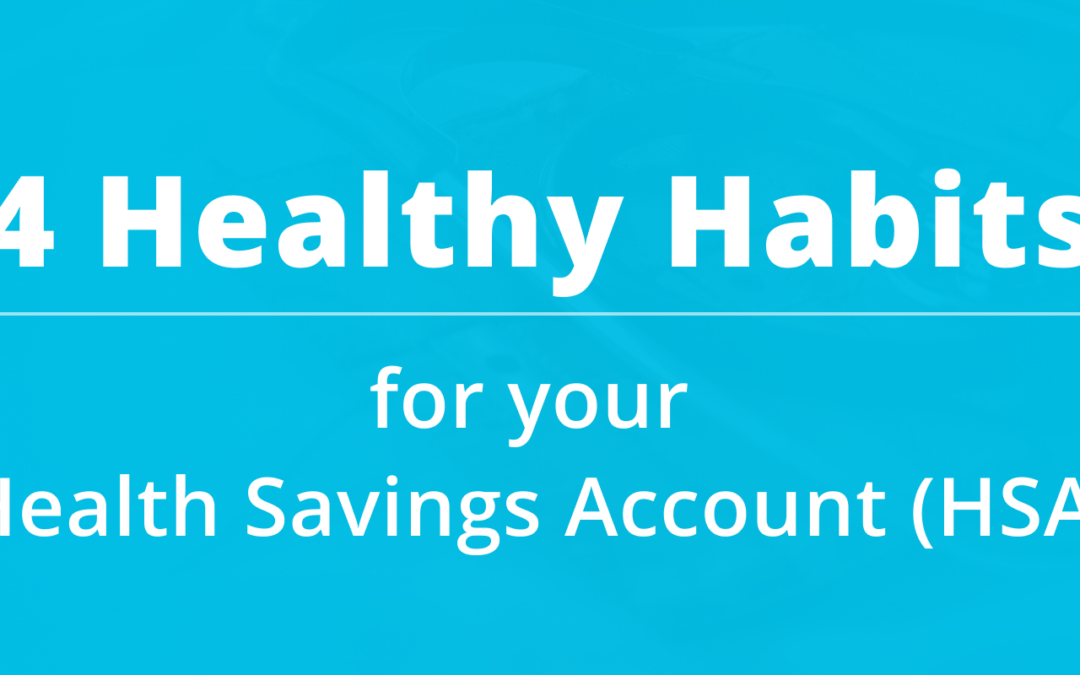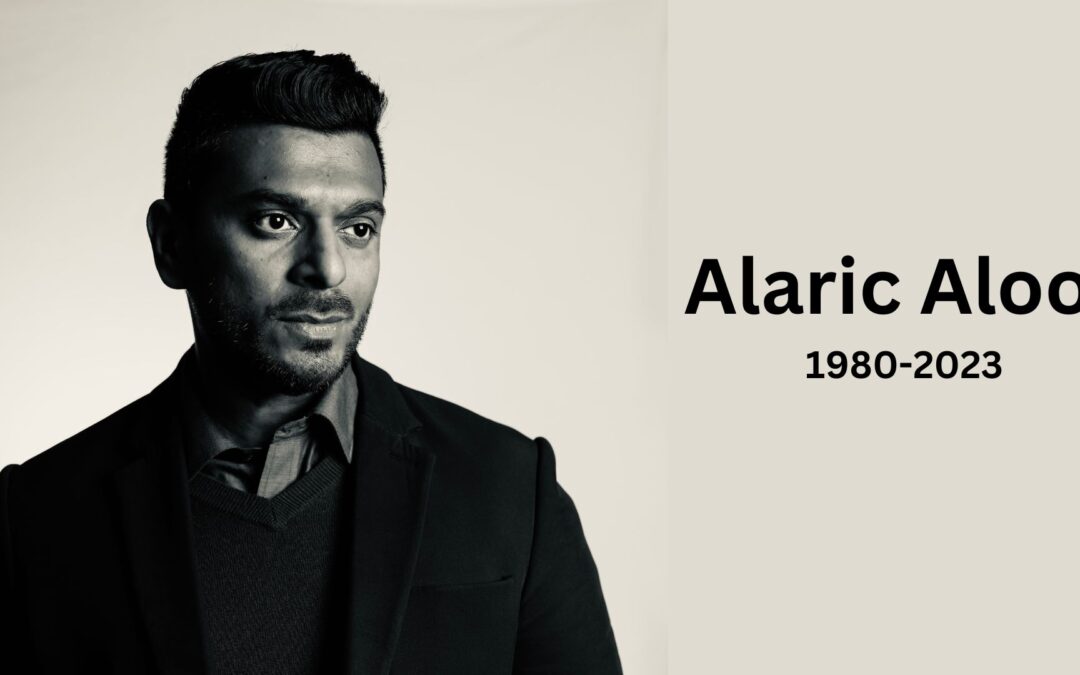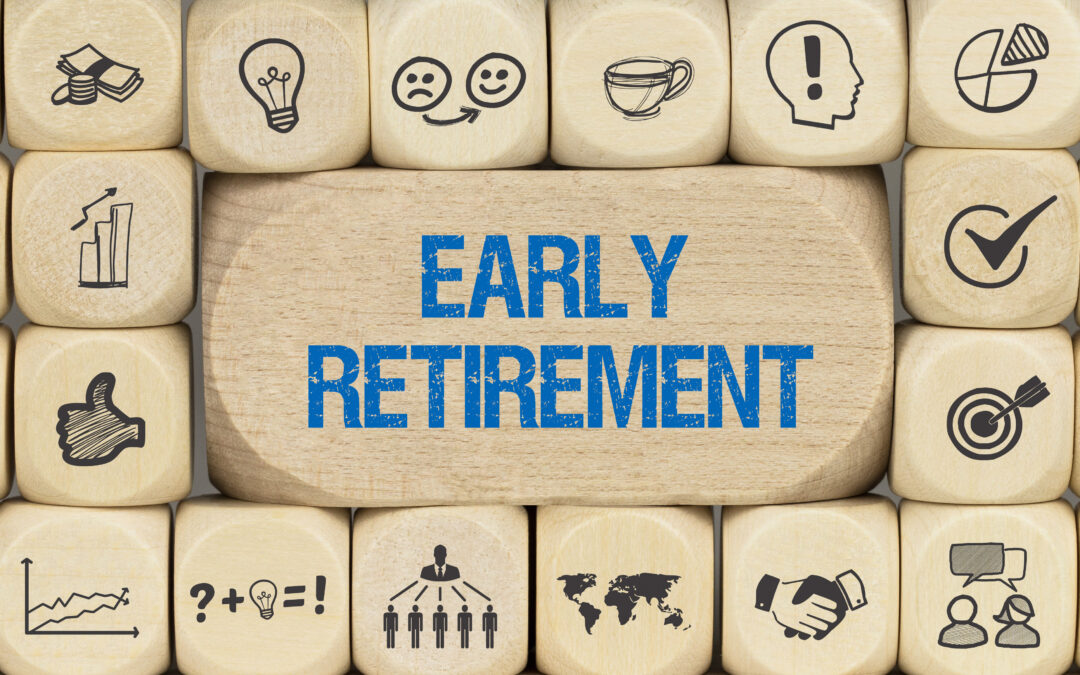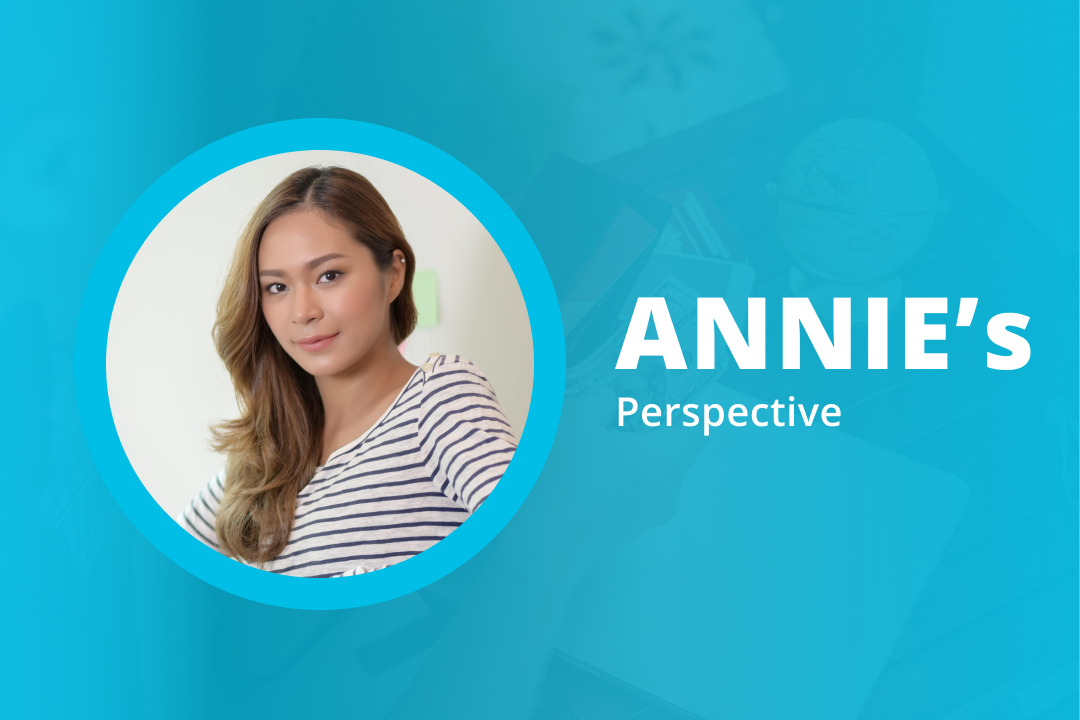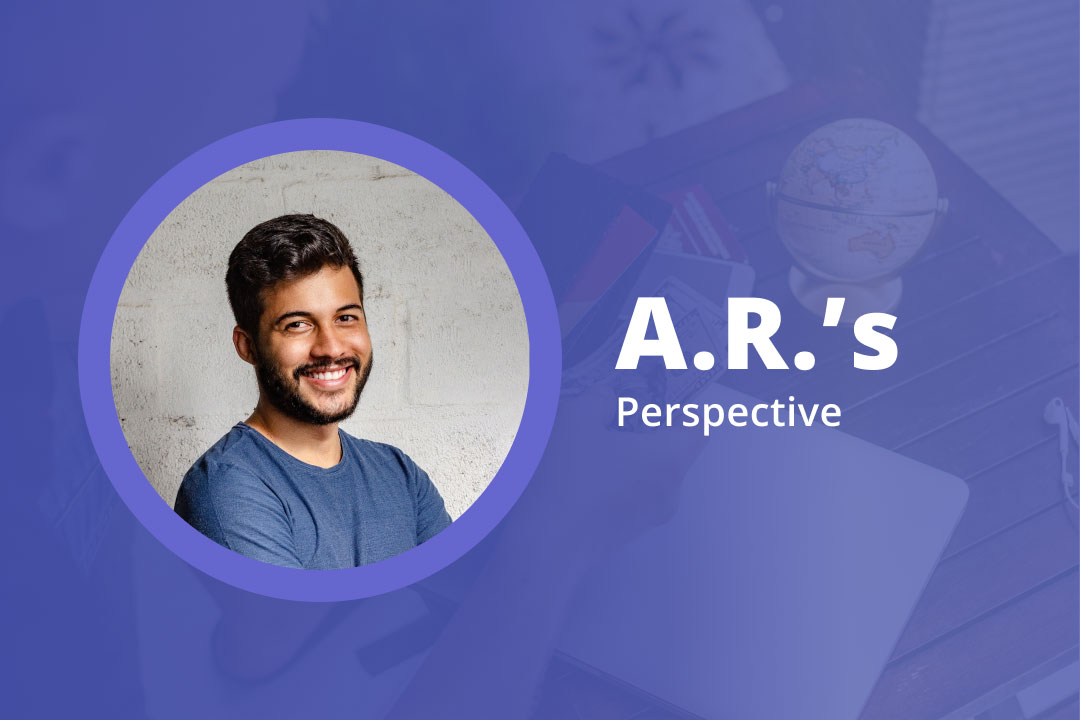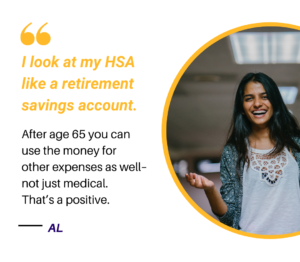
A.L. is a human resources professional in her mid-thirties who uses her HSA as a retirement strategy. Read how she learned about investing her HSA money and how she changed her mindset when signing up for an HDHP/HSA.
SO: How did you find out about health savings accounts (HSAs)? How did they benefit you?
I found out about HSAs from a previous employer about five years ago. The company did an excellent job of selling HDHP/HSA and convincing employees that if they are young with have fewer health expenses overall, they should explore HSA. The company pointed out that the contributions made to the plan by the employer and the employees are the employees to keep and do not expire.
The other thing they emphasized was the employer contribution amount. It was significant enough for employees to open an HDHP/HSA.
SO: Did they provide you a lot of education or did you research on your own?
They had roadshows where they provided many good examples of how you can save with an HDHP/HSA. You also pay less money on the premiums for the family plan. That’s how I changed from just an employee plan to an employee and family plan, which had my son and my husband on it. It’s an excellent plan for us. Especially when you take into account the contribution that the employer is making. Also, you’ve got a pre-tax advantage. Overall it made sense to us.
SO: How do you use your HSA? How do you see HSAs as a part of a bigger retirement strategy?
I use it mainly for prescription drugs. My family and I are on the younger side. The HSA amount that I have mostly covered it. I don’t even reach the limit each year. As far as the regular yearly check-up is concerned–it’s covered through the medical plan. So it’s free for all three of us every year.
I look at my HSA like a retirement savings account. My husband does as well with his HSA. I also did some research–after age 65, you can use the money for other expenses, not just medical. That’s positive.
SO: What advice would you give someone who is just starting on their HSA journey?
If you are on the younger side, you don’t have too many medical expenses, and you are looking for a long term retirement strategy–take a look at this plan.
It’s also essential to run the numbers before blindly choosing between an HMO or HDHP/HSA regarding income bracket and taxes. If you are below 40 years old and don’t have many expenses on the medical side, going for the HMO is making a wrong choice in terms of long term savings.
However, I have seen many people–single earners with a family of four–choose an HMO. Sometimes, an HMO makes sense because they are running the numbers and could use that money. In that case, it can make sense, but they aren’t thinking of the future. So, my advice would be, even if it’s just a little amount that you have leftover in your HSA, you can invest it. Think about the fact that, over time, that money will grow. Think about saving it.
SO: Math and finance talk about the fact that money today is better than money tomorrow. How did you reconcile it in your mind when you arrived at the decision that you didn’t need this cash today, so you’ll invest it?
In my perspective, I don’t need the cash today. I need the money tomorrow and during my retirement. It’s an overall medical retirement strategy that I can use in my later years. But sometimes, you want to see the cash in your bank account.
One thing I do regret is that for three years, I kept my HSA like a checking account. If I had gotten the education ahead of time, I could have seen my money grow.
SO: How did you find out that you could invest your HSA money? Was it a chance thing? Did you go looking for information?
I talked to someone and read some blogs that furthered my education about investing my HSA money. Initially, I was under the impression that after age 65, you can only use your HSA money for only medical expenses. I thought, “Well, how many medical expenses will I have?” I told my husband, “What if I died before that? What happens to the money? It’s just gone?” He said, “It’s not like that. It’s like a 401(k). That money belongs to you. It doesn’t go away.” That helped me understand that HSAs are a sound retirement strategy as well. The money is usable not just for medical expenses but for other things as well.
SO: When you did the math for you and your family for an HMO/PPO or whatever plan you were on before HDHP/HSA, did you come to any conclusion that this was beneficial to me because I’m not spending it?
The premium difference was there. When you take into account the whole family, the monthly premium was different. There was about a $75 difference per paycheck. And the employer contributions as well. Again, the employer pushed us to do it. The one thing the employer said is that even if you don’t contribute to the HSA plan, you still have $1500 from the employer without doing anything.
SO: Was there something you wish someone had told you when you were just starting on retirement planning?
I didn’t focus too much on investing in the beginning. So I lost 3-4 years. I wish someone had told me back then to invest with my HSA. I don’t know why employers don’t ever tell you that you can invest your HSA money and use it as a retirement strategy. I’ve never seen any employer roadshows with HR that tells me to do that. So if I had known previously, it would have been better for me.
SO: Are there any specific expenses that you were surprised to find out were covered?
I recently read a blog stating HSA plans cover pads and tampons. Next time when I go and purchase them, I’m going to use my HSA money.
Apart from that, I feel like I should search for what items are qualified medical expenses and what things aren’t.
SO: When you were just starting to invest (in an HSA or in general), were there any mindset barriers you had to overcome? How did you do this?
The financial aspect of it was the mental barrier that I had to overcome. I talked to my husband, for sure. And the $1500 free money was very attractive. That helped overcome the mental barrier of moving to an HDHP/HSA because, at that time, $3000 was the contribution limit for a family. So $3000 and above and you don’t have to pay anything for that year. $3000 and below will have to be from your HSA money, and out of that, the employer is always paying $1500. We knew that our expenses would never be more than $500-$700.
The employer was giving us money to spend on our medical expenses. That calculation made us see that it made sense for us.
SO: What advice do you have for people who may be in your shoes right now to get in the proper mindset of investing long term?
Be financially savvy. Run the numbers. Ask for information from various avenues. Not just from HR but from your HSA vendor. Talk to people that have opened an HSA already. What do they think about it? Some people believe that money is just getting accumulated and may not be usable. That’s a wrong mindset. You’d want to wait and use it later on–after 65. That’s the kind of attitude a person needs to build. It’s a long-term mindset.
NOTE: These are edited excerpts from the conversation with an HSA participant. In some cases, stock photos and only first names or initials have been used to protect identity.


